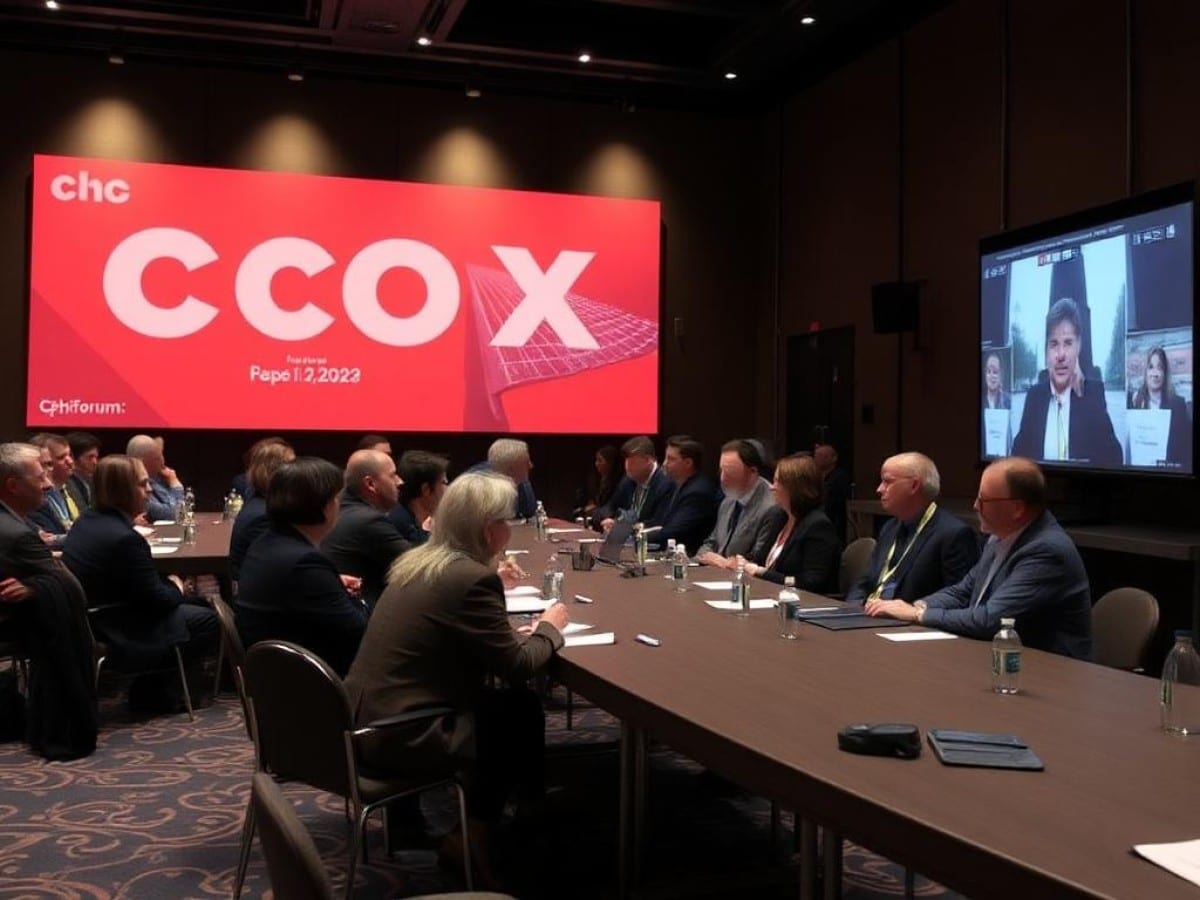This week, eight impactful film projects from Eastern Europe were highlighted at the CPH:Forum, a key part of the CPH:DOX international documentary film festival in Copenhagen.
Up-and-coming filmmakers from Armenia, Azerbaijan, Belarus, Georgia, Moldova, and Ukraine presented their work to notable industry figures, including representatives from Arte, IDFA, and the Whickers Fund.
These presentations were the pinnacle of a six-month mentorship program initiated by Change, established by IMS (International Media Support) in collaboration with CPH:DOX, EAVE (European Audiovisual Entrepreneurs), and the Danish Film School. The program aims to assist filmmakers from these regions in breaking into the global market.
The selected projects this year delve into heavy themes such as war, national identity, patriarchy, and activism, with budgets ranging between €92,000 ($99,000) and €329,000 ($356,000).
Popular on The Bangin Beats
Following the pitches, the filmmakers will engage in individual meetings with key industry leaders over the next few days.
The Bangin Beats interviewed the teams in Copenhagen, noting that some projects are omitted here due to their sensitive content.
“Leave Easy Come Back Safe” (Belarus) by Sasha Kulak and Masha Maroz, explores Belarusian identity through the lives of two young artists—one in exile and the other still in Belarus—while also capturing the cultural legacy of the remote Polesia region.
The documentary centers on three individuals—a traditional beekeeper, a healer, and a priest working to save a crumbling church—and includes historical footage from as far back as the 1930s.
“Our goal with this film is to not only preserve and document the distinct traditions and culture of this area but also to reflect on our own cultural and national identity. We hope to reveal this lesser-known cultural region both to the world and to our fellow countrymen,” producer Julia Shaginurova explained to The Bangin Beats.
“My Name Is Enough” (Armenia) by Ani Grigoryan and Marina Arzumanova, tackles the issue of sex-selective abortions in a secluded Armenian village. The main character, Ashkhen, anxiously awaits an ultrasound result that will decide her unborn child’s future, while her community resorts to ancient customs to guess the child’s gender.
“Learning about the numerous girls who were never given a chance to live, and about the women pushed into dangerous and unlawful abortions, compels us to question, ‘What if it were me?’” producer Ani Ordyan revealed. The film intertwines the narratives of various women, highlighting the societal pressures that drive these illegal abortions.
“Missing in Action” (Ukraine) by Marharyta Melnychuk and Kateryna Holovko follows Natalia, a former border guard on a quest to find her missing brother, a combat medic who vanished in Donetsk in 2023. While supporting her brother’s daughters and her ailing mother, Natalia takes a distant job that offers financial stability.
With a renewed sense of purpose, she pursues a master’s degree in psychology and uses her knowledge to assist others in their search for missing loved ones.
“Over 60,000 individuals, including civilians and soldiers, are missing in Ukraine, which is equivalent to the population of a small town. Natalia’s story is just one among thousands,” producer Aliona Kachkan stated.
“Import/Export MD” (Moldova) by Max T. Ciorbă and produced by Sergiu Scobioala of Realitatea Film, exposes the dire state of Moldova’s healthcare system, where underpaid doctors are compelled to seek opportunities abroad. The film weaves together the stories of various doctors and patients and features a group of doctors-turned-comedians who satirize the system’s absurdities through humor.
“Our film aims to give a platform for doctors to share their experiences and highlight the challenges they and their patients face in our nation,” Ciorbă commented.
“Whispers of Womanhood” (Georgia) by Rati Tsiteladze and produced by Olga Slusareva, portrays Tsiteladze’s sister Dea, who has struggled with infertility for over a decade in a Georgian society where a woman’s value is often measured by her ability to become a mother.
The documentary captures her deeply personal and lyrical quest through medical treatments, traditional rituals, and the tragic loss of her newborn due to medical malpractice. As Dea contemplates adoption, conflicts arise with her husband over his traditional views, pushing her towards other women who share her struggles. In secret, she explores IVF options, despite opposition from the Church, shifting her journey from a quest for motherhood to one of self-discovery.
“Dea’s candidness allows us to break the silence and give a voice to many women who suffer in silence,” producer Olga Slusareva explained. “This film is not just about infertility; it’s a deeper examination of human nature, identity, grief, and societal roles.”
Tsiteladze and Slusareva’s earlier documentary, “A Song Without Home,” about a transgender woman seeking a new life in Austria after years of confinement by her parents in Georgia, was showcased at CPH:Forum in 2023 and is expected to be released later this year.
“Entr’actes” (Ukraine/Belgium) by Yuriy Shylov, follows the charismatic 73-year-old Olena, who leads an amateur theater troupe of elderly members during wartime.
Despite air raids and her own declining health, she writes a play based on her experiences and her son’s service on the front lines. Under the guidance of young director Serhii, the troupe prepares for an amateur theater festival, which might be their last performance.
“This film is imbued with a sense of irony,” Shylov remarked. “For these characters, humor is a survival tool and a means to resist violence.”
Attending the Change pitches for the first time, Alice Burgin, now head of industry at the prominent Swiss documentary festival Visions du Réel, expressed her admiration: “This program underscores the pressing need that many filmmakers face—to tell impactful and vital stories in environments that may not always be receptive to their truths,” she observed.
“Perhaps this pitch session can provide these projects with an alternative route to funding that aligns with European values, while reminding us of the importance of continuing to listen to local narratives,” she added.
CPH:Forum continues in Copenhagen until March 27.
